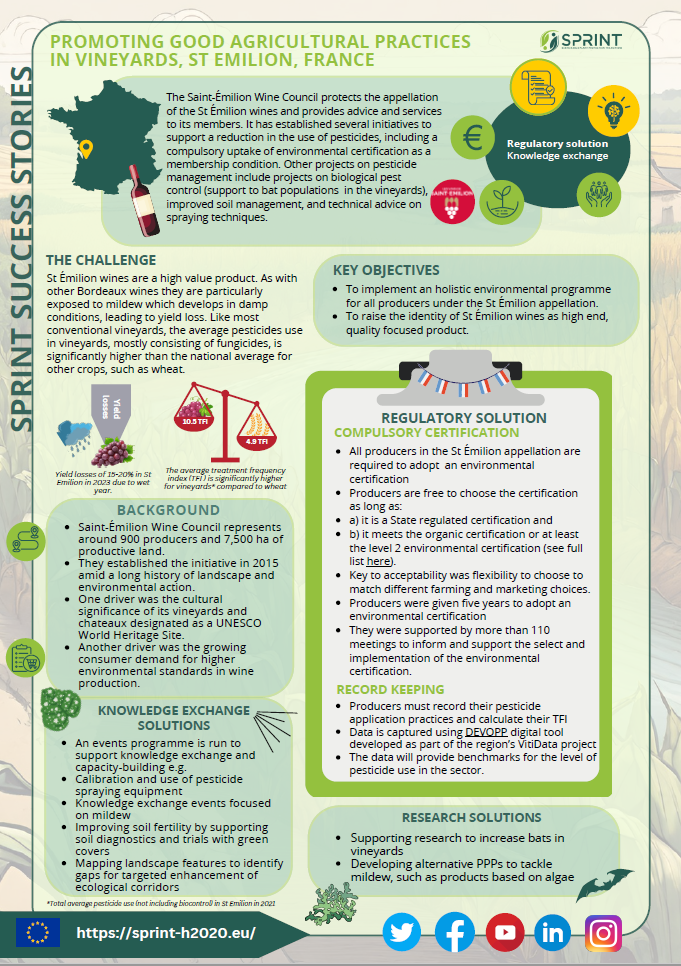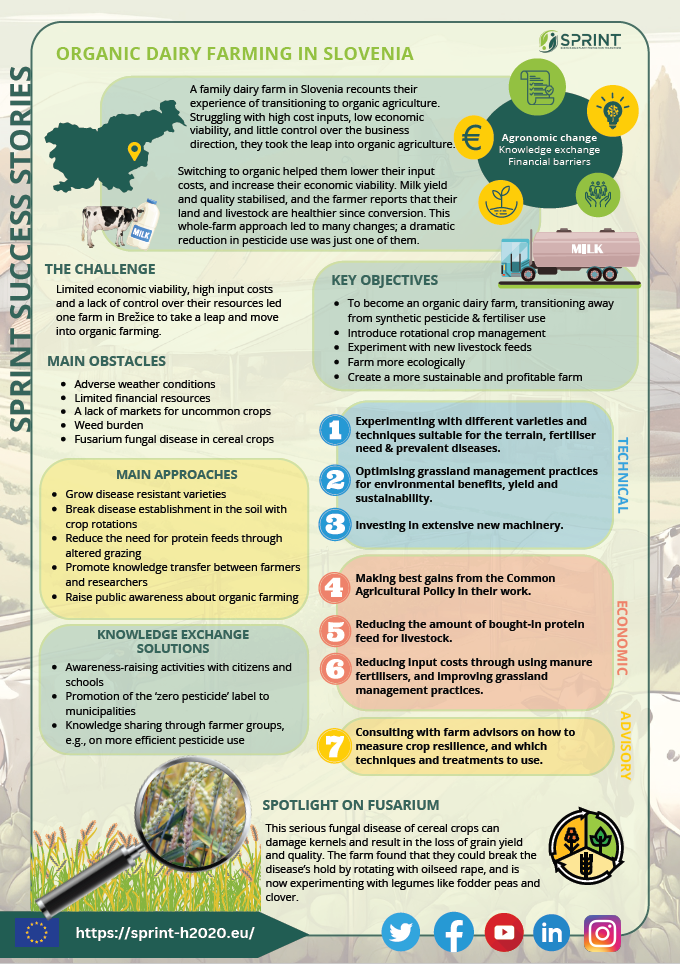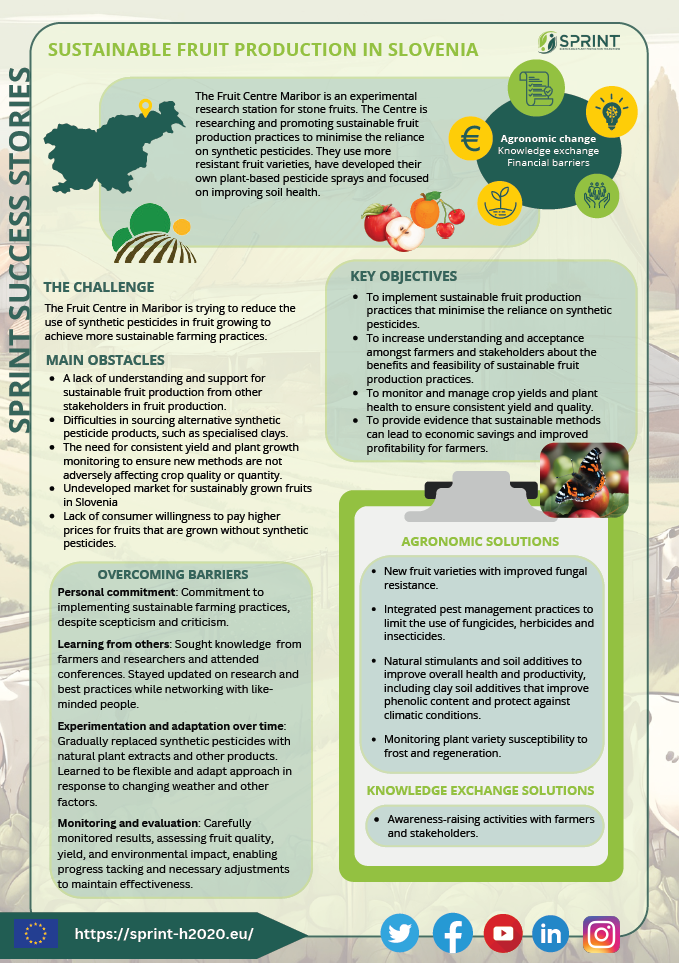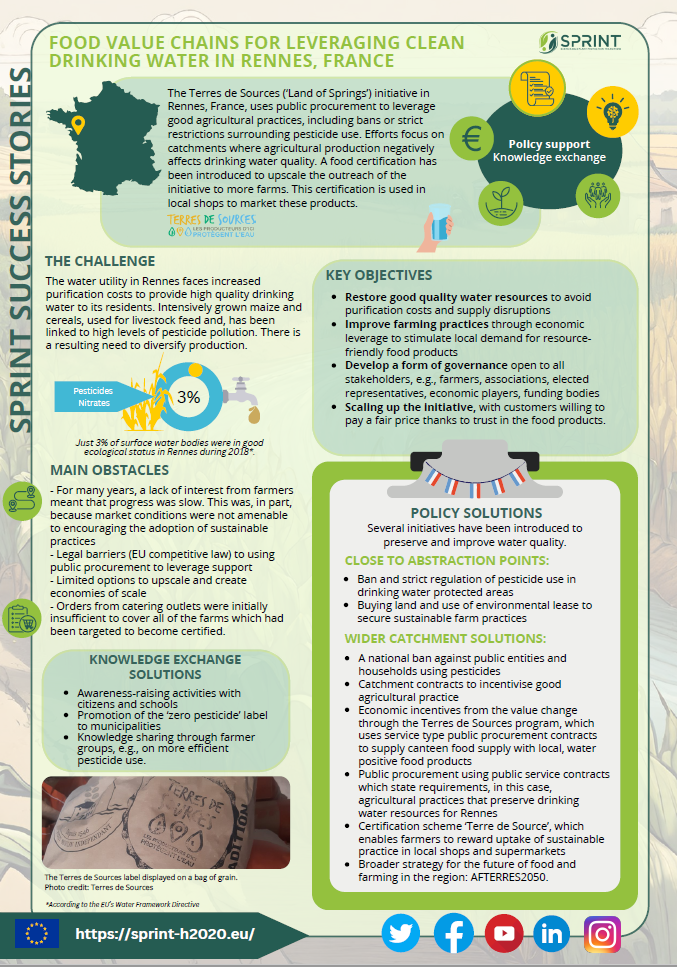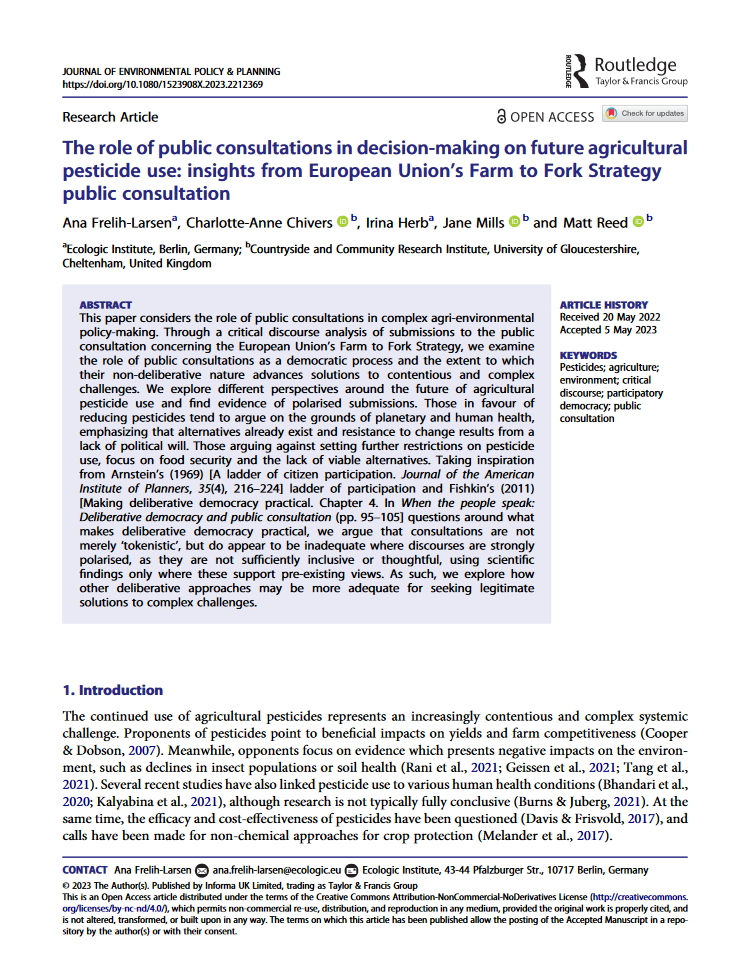Promoting Good Agricultural Practices in Vineyards, St Emilion, France
- Publication
- Citation
Rouillard, Josselin et al. 2024: Promoting Good Agricultural Practices in Vineyards, St Emilion, France. SPRINT fact sheet.
The vineyards of St. Emilion, France, face significant challenges due to the reliance on pesticides, particularly given the region's susceptibility to mildew. However, the winegrowers of St. Emilion have successfully committed to a sustainable future by implementing stringent environmental regulations and significantly reducing pesticide use. This case study, examined under the SPRINT project, highlights the initiatives and successes achieved in the region, which aims to promote sustainable practices in viticulture.
The Challenge: High Dependency on Pesticides
St. Emilion is renowned for its high-quality wines, which are highly dependent on climatic conditions. Wet years often lead to an increase in mildew, a disease that can cause significant yield losses. To combat this disease, the use of pesticides was widespread in the past. In fact, the use of plant protection products in the region's vineyards was significantly higher than the national average for other crops like wheat. This dependency on chemical treatments posed a threat not only to the environment but also to the reputation of St. Emilion wines.
Implementing Sustainable Solutions: Certification and Knowledge Exchange
In 2015, the Saint-Émilion Wine Council initiated a comprehensive shift towards more environmentally friendly practices. A key measure was the introduction of mandatory environmental certification for all producers. This certification required at least a state-recognized environmental certification, with producers given the flexibility to choose the certification that best matched their operational and marketing goals. This process was supported by extensive training and knowledge exchange events, helping producers adapt to the new requirements.
Results and Lessons Learned: A Model for Sustainable Viticulture
By 2023, 98% of the wine producers in St. Emilion had achieved environmental certification, with many gradually adopting higher standards over time. This transformation was accomplished through a combination of compulsory and voluntary approaches, offering a model that could be replicated by other wine regions across Europe.
Conclusion
The St. Emilion case study illustrates how a targeted combination of regulation, knowledge exchange, and flexible implementation can successfully introduce increasingly sustainable agricultural practices. The results from St. Emilion could serve as a blueprint for other wine regions facing similar ecological and social challenges.
